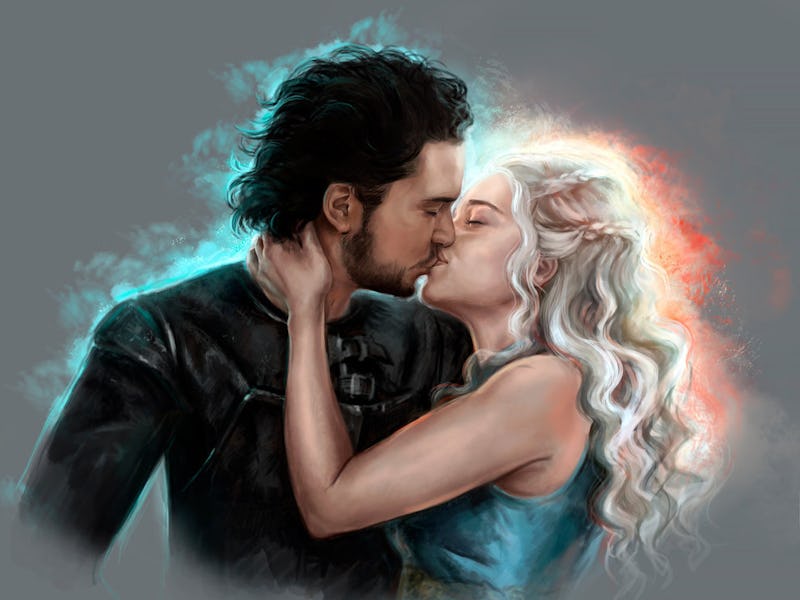In its Season 7 finale, “The Dragon and the Wolf,” Game of Thrones is expected to double down on what it does best: incest. All the canoodling between the Mother of Dragons and the former King in the North has, until this point, been biologically benign, but if sperm meets egg on Sunday night, it could spell disaster for whatever spawn they might produce.
It’s no secret among Game of Thrones fans that Daenerys and Jon Snow are aunt and nephew, but the degree to which they are related has only been the subject of speculation. Recently, Reddit user amacaroon did the “incest math” to figure out just how closely the two are related, concluding that the pair share 44 to 47.45 percent of their DNA. For comparison, monozygotic (identical) twins share 100 percent, siblings share 50 percent, and two unrelated individuals have zero percent.
The University of Aberdeen geneticist and The Science of Game of Thrones contributor Jonathan Pettitt, Ph.D., co-signed on the conclusion in an email to Inverse, implying that any hookup that produces such high levels of consanguinity is a biological no-go. Take what happened to Dany as an example:
The upshot is that with an inbreeding coefficient of 37.5% (a third of her genome is identical on both chromosomes – homozygous) she would be debilitated by the effects of mutations (unless humans have fewer deleterious mutations in George RR Martin’s universe).
The “inbreeding coefficient” he refers to is a measure (largely by dog breeders) of the common ancestors that an individual has.
The Targaryen family tree
At 37.5 percent, Dany’s coefficient of inbreeding is extremely high (her parents and her grandparents were siblings), increasing the chances that potentially life-threatening mutations will actually have an effect on the individual. Generally speaking, humans frown upon incest because it increases the chances that a person will have a copy of a deleterious gene from both mom and dad, which in turn increases the chances that the gene’s effects will manifest.
Pettitt and some redditors point to Charles II of Spain as a real-life example of a person who was deeply inbred: He had an inbreeding coefficient of 25.4 percent and was a famously ineffectual ruler because of his noted physical, intellectual, and emotional disabilities. Dany’s inbreeding coefficient is even higher, implying that she should be a lot less healthy than the show suggests.
If amacaroon’s calculations are right, and Jon Snow and Dany have a relationship coefficient of 44 percent, their children will be much worse off than Charles II.
Not that incest has ever mattered in Game of Thrones. As Pettitt points out, there seems to be something special about the genetics in Martin’s universe because incest never seems to lead to more illness. Ultimately, in Westeros, incest only matters if it puts one house at a disadvantage, and as Pettitt notes, Jon and Dany can rest assured that they’re not the only family in Westeros who might fall prey to genetic disease.
“Same goes for the Lannister/Baratheon children,” he says.
